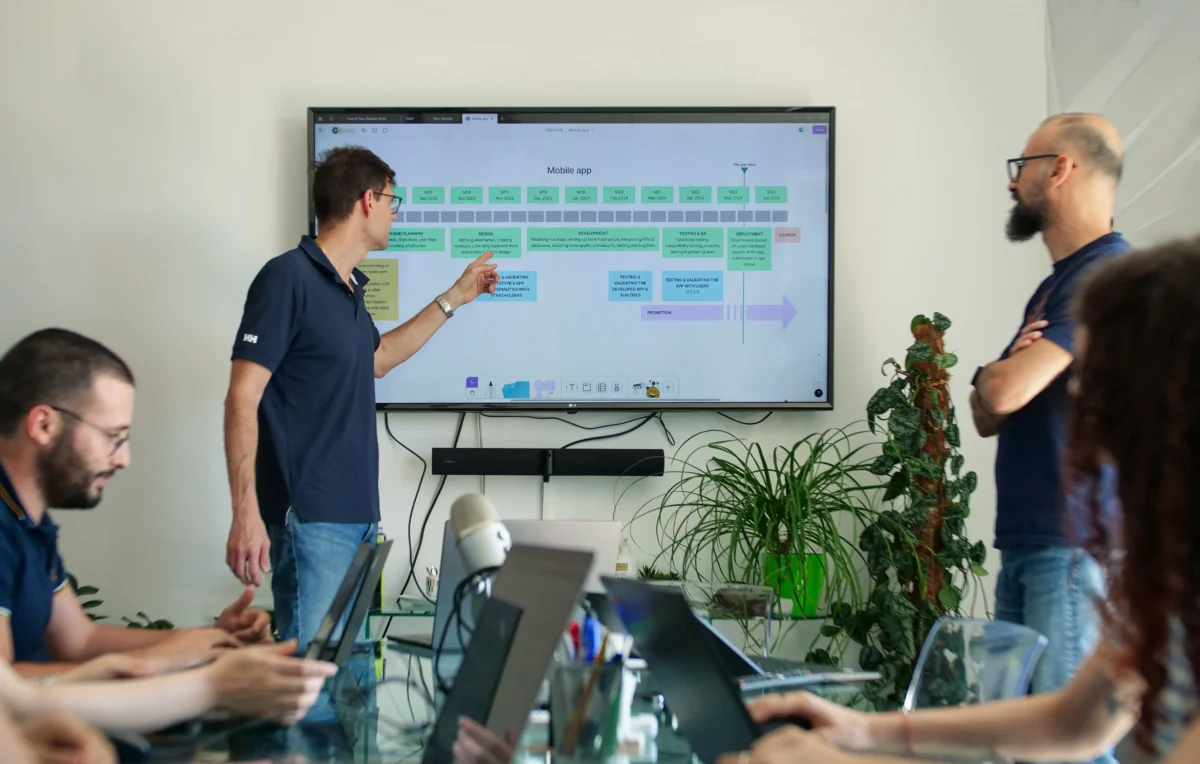Summary – Quote variations up to 3× for the same software need, opaque pricing between hourly rates, fixed fees or a hybrid model, risks of scope creep, use of low-cost offshore providers and limited guarantees. Rates range from 100 to 200 CHF/h depending on expertise and location, fixed-fee or hybrid models offer budget visibility, but licenses, infrastructure, maintenance, documentation and a buffer for change requests must be included.
Solution : require a transparent, itemized quote (scope,
In Switzerland, quotes for the same software requirement can vary threefold. This dispersion goes beyond hourly rate differences: it reflects choices in approach, expertise, technical scope and project governance. Decision-makers must therefore scrutinize a quote’s details to distinguish what’s included, what’s estimated and what might be billed as extras.
Components of the Quote: Understanding What Lies Behind the Price
A high hourly rate isn’t necessarily indicative of long-term extra costs. A low-cost quote may hide significant technical shortcomings.
Hourly Rate, Fixed Price or a Hybrid Model
In Switzerland, a developer’s hourly rate can range from 100 to 200 CHF depending on expertise and specialization. Agencies in Zurich, for example, often charge more than those in Geneva, citing higher living costs and payroll expenses.
However, an all-inclusive fixed price for a bespoke digital project can offer budget visibility—provided the scope is precisely defined. This is common for mobile app proposals or software quotes structured in phases (“discovery,” development, testing, deployment).
Hybrid models combine a daily rate with milestone-based fixed fees: they ensure both flexibility and budget control. Yet they require meticulous tracking of the software project scope and shared governance between the client and the Swiss development provider.
Licenses, Infrastructure and Maintenance
A quote may include software license costs (commercial component libraries, ERP, CMS, proprietary third-party APIs) or rely entirely on open-source solutions. The open-source approach naturally avoids vendor lock-in and minimizes recurring fees, thereby reducing the total cost of ownership (TCO) over time.
Sizing cloud infrastructure, provisioning servers, CI/CD pipelines and monitoring often represent 15–25 % of the overall budget. This line item—sometimes underestimated—ensures performance and scalability for a digital project.
Finally, corrective and evolutionary maintenance (SLA, support, security patches) should have its own line in the quote. A reliable Swiss-made provider will detail availability commitments and response times without artificially inflating the initial bill with poorly anticipated extras.
Surprises and Additional Costs
Unforeseen costs usually arise from out-of-scope change requests or unplanned technical adjustments. Billed hourly, these can drive the budget up at the end of a project. We’ve published advice on how to limit IT budget overruns.
Documentation, user training and digital project support are sometimes deemed optional, even though they determine a software’s sustainability and adoption. It’s wiser to include these services in the initial digital project estimate. Our article on the risks of missing technical documentation offers pointers to avoid this pitfall.
Lastly, a seemingly low quote may hide extensive subcontracting to low-cost developers without guarantees on code quality or responsiveness in case of critical bugs.
Factors Influencing Software Development Agency Rates in Swiss Romandy
Several local and strategic variables affect the cost of application development in Geneva and beyond. Understanding these factors lets you compare digital agency quotes knowledgeably.
Agency Location and Structure
Agencies based in Geneva or Zurich often maintain city-center offices with high fixed costs. These overheads are reflected in hourly rates but ensure proximity and responsiveness.
A small specialized firm may offer slightly lower rates, but there’s a risk of resource overload during peak periods, which can triple or quadruple your delivery times. Conversely, a larger agency provides absorption capacity and scaling—essential for large-scale bespoke digital projects. Your software’s security, performance and scalability also depend on the size of the provider.
Choosing between a local agency and an international group’s subsidiary also affects your level of strategic advice. A Swiss-made player with its core team in Switzerland often leverages deep knowledge of the local economic fabric and delivers project support aligned with Swiss regulatory requirements.
Expertise, Specialization and Project Maturity
Specialized skills (AI, cybersecurity, micro-services architecture) command higher rates but ensure robustness and scalability for business-critical software.
A mature project backed by strategic planning benefits from an exhaustive specification and a clear software project scope. This reduces uncertainties and, ultimately, the risk of costly project compromises.
In contrast, an exploratory project with frequent iterations demands more flexibility and short cycles. The budget must then include a margin for prototyping, user testing and adjustments, rather than imposing an overly rigid development budget.
Client Size and Corporate Culture
Large corporations or publicly traded companies typically require longer validation processes, security audits and frequent steering committees. These layers add significant time and cost.
An SME or scale-up can adopt leaner governance. The cost-quality-time triangle can be adjusted more swiftly, but the absence of formalities may lead to late scope reviews and additional expenses.
Industry sectors (finance, manufacturing, healthcare) often impose high compliance and security standards. These requirements must be anticipated in the quote to avoid hidden clauses related to audits or certifications.
Edana: strategic digital partner in Switzerland
We support companies and organizations in their digital transformation
How to Balance Cost, Quality and Timelines
The lowest price isn’t always the best choice: it can mask technical and human deficiencies. A well-defined software project scope ensures alignment between business needs and your web application budget.
Apply the Quality-Cost-Time Triangle
The classic quality-cost-time triangle illustrates necessary trade-offs: accelerating a project raises costs, cutting price can extend timelines, and lowering quality entails long-term risks.
A small, simple project—like a custom API integration—can be done quickly and affordably. By contrast, an integrated platform with ERP, CRM, mobile modules and reporting systems requires significant investment and a more extended schedule.
When comparing digital agency quotes, request a clear breakdown across these three axes: which scope is covered, at what quality level and within what timeframe? Without this transparency, choosing a quality agency becomes impossible.
Prioritize Your Project’s Functional and Technical Scope
Precisely defining essential features (MVP) and those slated for phases 2 or 3 helps frame the initial budget. This approach controls Geneva application development costs without compromising business value.
A vague scope leads to endless back-and-forth and dozens of billed hours for minor tweaks. Conversely, an overly rigid scope may exclude needs that emerge during the project.
The right balance is to split the project into clear milestones and include a buffer for the natural uncertainties of bespoke development in Switzerland.
Assess Long-Term Value and Solution Maintenance
Poorly documented software without automated tests incurs disproportionate maintenance costs. Every update becomes a leap into the unknown, risking breaks in existing functionality.
By evaluating the five-year TCO rather than just the initial budget, a “bargain” quote often reveals its shortcomings: under-resourced QA, missing CI/CD pipelines, underestimated repeat deployments.
Investing slightly more upfront to ensure a modular architecture, leverage open-source and define a maintenance plan can sharply reduce recurring costs and secure your application’s longevity.
Pitfalls and False Low-Ball Offers: Avoid Unrealistically Low Quotes
An abnormally low rate seldom means genuine savings. Understanding low-cost methods and contractual traps helps you keep control of your budget.
Low-Cost Offers and Offshore Subcontracting
Some Swiss providers fully outsource development to offshore teams. Their rates seem attractive, but distance, time-zone differences and language barriers can delay deliveries.
Back-and-forth on anomaly management or specification comprehension becomes time-consuming and generates hidden costs, especially for coordination and quality assurance.
Combining outsourced development with a local Swiss management team offers a better balance: faster communication, adherence to Swiss standards and accountability from the primary provider.
Another issue with agencies subcontracting their own software and app development abroad is limited control over code quality and technical decisions. We often work with clients who were lured by low prices but ended up with software or a mobile app that couldn’t handle user load, had security vulnerabilities, numerous bugs or lacked evolvability. These combined issues can render the digital solution unusable. Engaging an agency whose core team is based in Switzerland ensures a flexible, secure software solution truly aligned with your strategic needs.
Insufficient Contractual Clauses and Guarantees
A quote may offer a fixed price without detailing liability limits, SLAs or intellectual property rights. In case of dispute, lacking these clauses exposes the client to extra costs for fixing defects.
Free bug-fix warranties are often limited to a few weeks. Beyond that, each ticket is billed at the standard (and usually higher) hourly rate once the inclusive maintenance window closes.
A reputable provider always states the warranty duration, delivery conditions and offers digital project support covering minor evolutions without surprises when issuing a mobile app or business software design quote.
Misleading Presentations and Hasty Estimates
A one-day estimate without proper scoping, software engineer input or risk analysis yields an unreliable quote. Error margins can exceed 30 %, with upward revisions during execution.
Agencies offering quick quotes sometimes aim to lock in clients before they explore competitors. This undermines transparency and can compromise trust throughout the project.
Comparing digital agency quotes therefore requires a rigorous selection process: scoping workshop, solution benchmarks and joint validation of assumptions and estimated effort.
Choosing a Sustainable, Controlled Investment to Succeed in Your Software Project
Understanding quote components, the factors driving rates in Swiss Romandy and the trade-off between cost, quality and timelines enables an informed choice. A fair rate relies on a clearly defined scope, a modular architecture and a realistic maintenance plan.
Whatever your industry or company size, at Edana our experts are ready to analyze your digital project estimate and help you structure a tailored budget. Their contextual approach—rooted in open-source and business performance—ensures uncompromising digital project support.







 Views: 4271
Views: 4271